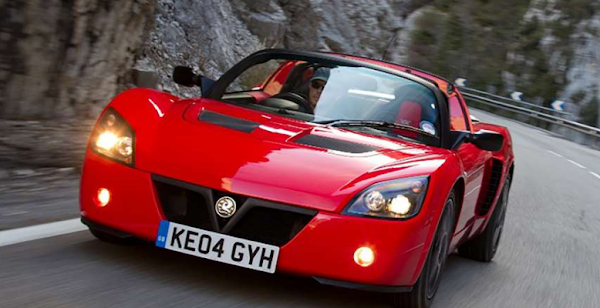
Vauxhall’s VX220 roadster will always be seen as an extreme side-step from the usual model range during the 2000s. A low, wide, targa-topped, two-seat roadster sat among the Astras and Corsas and Zafiras of the Vauxhall range like a brick in a bowl of soup.
You see, the story goes that General Motors was approached by Lotus, which wanted to develop the Series 2 Elise but had the lofty hurdle of meeting much more stringent crash protection regulations. GM rubbed its hands together and got stuck in.
With Hethel’s help, it cranked out a striking roadster that would be badged as the Vauxhall VX220 in right-hand drive format and as the Opel or Daewoo Speedster in Europe and other markets further afield. All on the same production line as the Elise in Norfolk, with the first GM versions going on sale first.
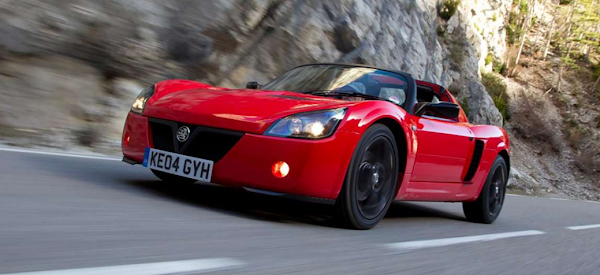
Any more history?
Well, from a CAR magazine perspective, we loved the dinky Vauxhall roadster. Our first drive of the naturally-aspirated VX220 in the September 2000 led author Paul Gregory to moan about very little; ‘In the roadster realm, it costs less than an S2000 and considerably less than the TT. It is a rawer, more sporting environment than both and is more wieldy – and far less tail-happy – than the S2000 at the limit.’
The boosted VX220 Turbo, meanwhile, was our Performance Car of the Year 2003: ‘Any road becomes VX road. And once it owns the road, it owns your heart.’ Strong words.
It was readier for the track than the other VXs. There was 20bhp more (up to 217bhp) from the 2.0-litre turbo due to a better turbocharger, a remapped ECU and a free-flow air filter. The 10mm lower suspension with stiffer Bilstein damping completed the list. It also had a very limited production run of just 65.
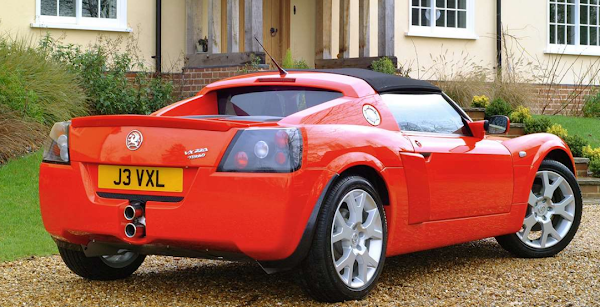
This particular one (KE04 GYH, aka V22 VXL) is VXR 01 – the first-ever car to carry the VXR badge for Vauxhall; something that led to the likes of the truly insane Corsa and Astra VXR cars and even became the name of the Aussie-derived coupe in its later life on UK shores: the VXR8 (formerly Monaro).
Tell me about it then!
Where to start. I was just turning into double digits when the VX first went on sale. It was one of the very early sports cars in my life that I had a genuine dream of owning; the crisp lines, vertical central exhaust, pointy headlights and Christmas light rear clusters were an alluring concoction.
I still have feelings for it now. I’m also 6ft 3in, which, for a brief moment, felt well into the realms of ‘too tall’ when approaching the VXR from a distance. Climbing in takes real gymnast flexibility from your lower half; sit on the thick side sill, work your feet underneath the eeny-weeny steering wheel and pretty much fall into the fixed-back bucket seat. Getting out is even funnier.
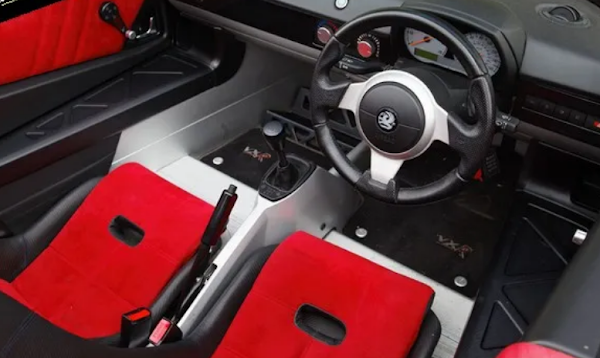
Still, get going and the magic of such a pokey roadster hits quickly. In town, the ride is firm (although others in the CAR office say the VX in general is softer than the comparative Elise) and, due to the low weight, you skip over lumpy surfaces.
You’re very much involved in the whole process, though – getting in and driving this analogue roadster is so, so welcome when you’ve just gotten out of something from 2018 that’s shrouded in electric this, adaptive that and hot-and-cold running widescreen infotainment systems.
All of the road’s imperfections are translated via that tremendously hefty yet incredibly dinky steering wheel. At motorway cruises, it’s precise without being too jerky by your inputs; in town the weighting is more noticeable but no less welcome. Parking requires some serious arm strength, but that ain’t a complaint either.
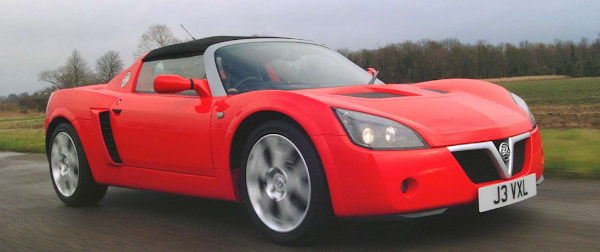
And then there’s the engine. It’s a turbocharged one from the early 2000’s, so it was put to work long before may brands truly understood how to eliminate a good portion of lag. So, while the lower end of the rev spectrum makes for pleasant pottering, when the boost does arrive, acceleration is electric and addictive. That coupled with the tactile, not-too-heavy, clunk-click of each gearchange is great.
Incorporating the two together on a twisty road and you can see why we loved it so much when it first came out. Few cars, other than the likes of Lotus and Caterham, still offer such a purity in the driving experience. It’s still arguably a weekend toy rather than an everyday car, but it’s certainly more capable than driving a Seven everywhere.
Regardless of whether you’re particularly after a super-rare VXR220 like this one or the 2.2-litre VX220 or 2.0-litre VX220 Turbo, there are some things you’ll need to know about Luton’s roadster, with intel from Ben Barry.
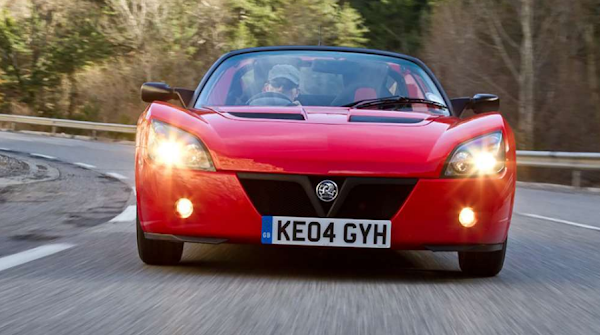
If you need a new soft-top roof, it’ll cost £1200 new direct from Lotus or around £500 for a good used one. For the VX220 Turbo models, the cambelt should be changed every four years, while the turbos themselves can suffer from boost leakage, failing vacuum pipes and recirculation valves with perforated membranes.
Damage to the aluminium chassis can write a whole car off as Lotus never sanctioned a proper repair process but specialists say it can be done.
Want one? A good naturally-aspirated model will cost you around £17,000, a Turbo around £19k and the VXR220 like the one we’re driving here can stretch from anywhere between £22k and £30k. It may have been pricier new than the comparative Lotus, but your wedge now goes around £5,000 further here than the equivalent Elise on the used market due to rarity. Odd to mention that when looping in the Lotus Elise in the same conversation.
Life and hero car box ticked, and without disappointment. The Vauxhall VX220 is a thriller of a roadster that just looked so out of place with the rest of GM-era 2000s Vauxhall, but it represented the start of some fiercely pokey performance cars in the years after and shows that a blue-collar brand can still attract an enthusiast audience.
On sale in the UK: 2005
Engine: 1998cc 4cyl turbo, 217bhp
Transmission: Six-speed manual, rear-wheel drive
Performance: 4.2sec 0-62mph, 154mph











